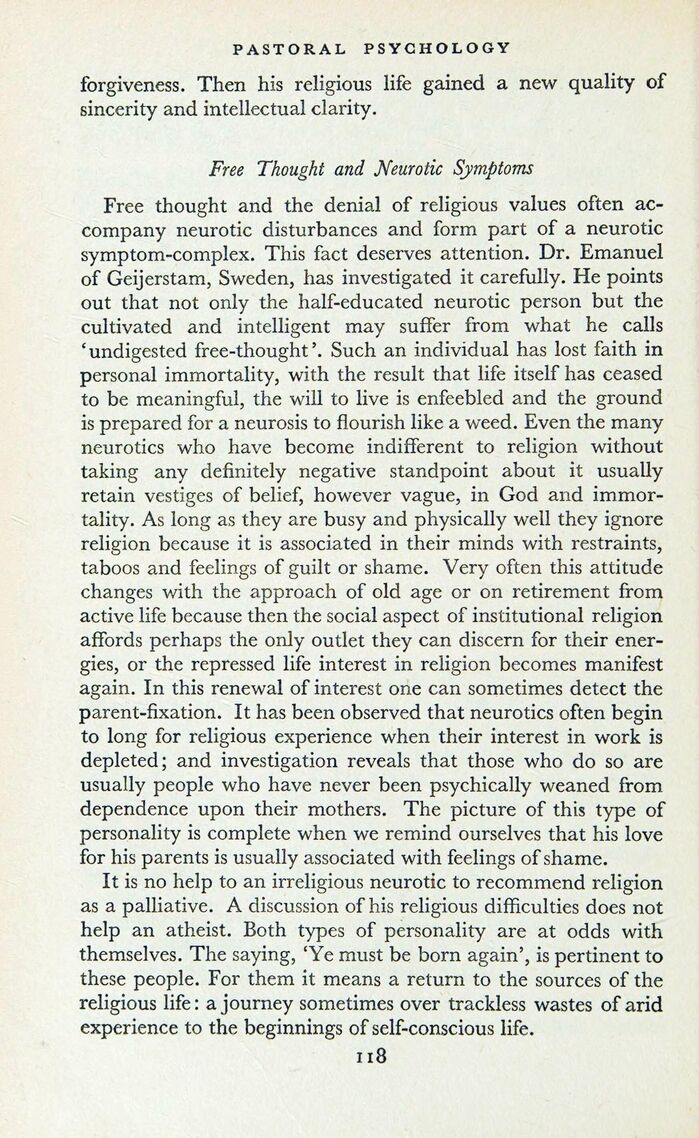
Full resolution (JPEG) - On this page / på denna sida - Part 3. The Psychology of Unbelief - 3. Unbelief in the Individual - The Purpose of Unbelief - Free Thought and Neurotic Symptoms

<< prev. page << föreg. sida << >> nästa sida >> next page >>
Below is the raw OCR text
from the above scanned image.
Do you see an error? Proofread the page now!
Här nedan syns maskintolkade texten från faksimilbilden ovan.
Ser du något fel? Korrekturläs sidan nu!
This page has never been proofread. / Denna sida har aldrig korrekturlästs.
PASTORAL PSYCHOLOGY
forgiveness. Then his religious life gained a new quality of
sincerity and intellectual clarity.
Free Thought and Neurotic Symptoms
Free thought and the denial of religious values often
accompany neurotic disturbances and form part of a neurotic
symptom-complex. This fact deserves attention. Dr. Emanuel
of Geijerstam, Sweden, has investigated it carefully. He points
out that not only the half-educated neurotic person but the
cultivated and intelligent may suffer from what he calls
‘undigested free-thought’. Such an individual has lost faith in
personal immortality, with the result that life itself has ceased
to be meaningful, the will to live is enfeebled and the ground
is prepared for a neurosis to flourish like a weed. Even the many
neurotics who have become indifferent to religion without
taking any definitely negative standpoint about it usually
retain vestiges of belief, however vague, in God and
immortality. As long as they are busy and physically well they ignore
religion because it is associated in their minds with restraints,
taboos and feelings of guilt or shame. Very often this attitude
changes with the approach of old age or on retirement from
active life because then the social aspect of institutional religion
affords perhaps the only outlet they can discern for their
energies, or the repressed life interest in religion becomes manifest
again. In this renewal of interest one can sometimes detect the
parent-fixation. It has been observed that neurotics often begin
to long for religious experience when their interest in work is
depleted; and investigation reveals that those who do so are
usually people who have never been psychically weaned from
dependence upon their mothers. The picture of this type of
personality is complete when we remind ourselves that his love
for his parents is usually associated with feelings of shame.
It is no help to an irreligious neurotic to recommend religion
as a palliative. A discussion of his religious difficulties does not
help an atheist. Both types of personality are at odds with
themselves. The saying, ‘Ye must be born again’, is pertinent to
these people. For them it means a return to the sources of the
religious life: a journey sometimes over trackless wastes of arid
experience to the beginnings of self-conscious life.
118
<< prev. page << föreg. sida << >> nästa sida >> next page >>